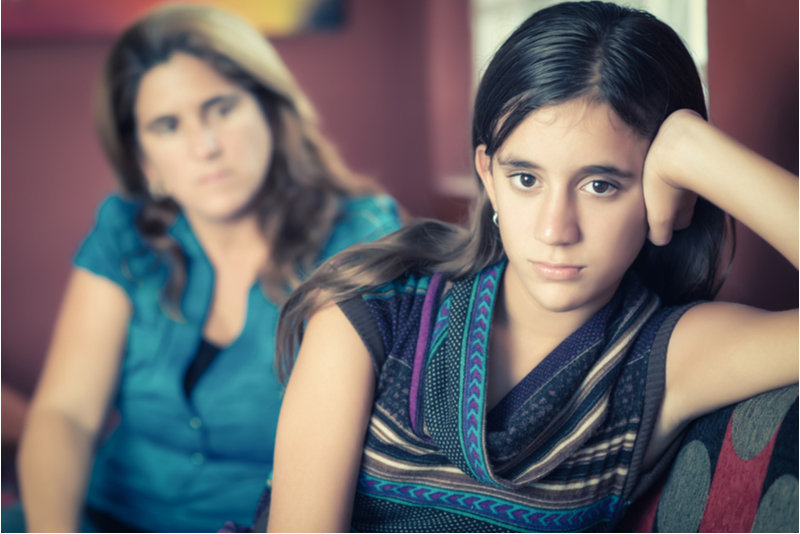Need to brush up on tips about internet safety for parents? It’s no wonder why there’s a sudden spike in searches for parents seeking help about this topic — For many of us in New York State, home-based work and school are the new normal. Across the nation, families are changing their daily routine as facts about coronavirus and related information arise. But with these added safety measures come added risks.
Children and teenagers using the internet to access online schools, social media, and recreation are more at risk than ever before to be targeted by sexual predators and child abusers. According to the Child Rescue Coalition, a predator will abuse, on average, 50 to 150 children throughout the predator’s lifetime. Stop would-be rapists and child abusers in their tracks with this information on internet safety for parents.
Lay Some Ground Rules
Establishing rules for how your child needs to conduct themselves online should be mandatory in every household. While some rules might seem obvious to you — don’t talk to strangers, don’t send inappropriate images, don’t be a bully, don’t post your phone number or address online, etc. — these issues might not seem so cut-and-dry to a child or teen. Write the rules down. Post them in a common area, like on the fridge or next to a shared computer.

Explain Why Web Safety Rules are Necessary
Kids and teenagers thrive in structured environments, but they’ll need to know why these rules are put into place to fully understand why the rules are required. Rather than try to shield them from the truth of the matter, put it bluntly: There are people in the world who want to hurt kids.
You don’t have to go into the disturbing details, but make sure that your child is aware of this danger. Knowing that they’ll need to be as aware of faceless dangers online as they are with strangers in public might help them better grasp the reality of the situation.
The bottom line: Make sure to tell your child that it is never their fault if an adult makes them feel uncomfortable, online, or in person. And let your child know to turn to you immediately if anything is happening that makes them feel uneasy so that you can help.
Monitor Children’s Online Activity
Just like you would keep an eye on a young child at a playground, you’ll need to monitor your child’s or teen’s internet activities, too. While some parents may believe this is overstepping or being nosy, you can never be too careful when it comes to the safety of your child.
In the past decade or so, this was as simple as keeping the family computer in a shared space. Now, it’s a bit more complicated. Fortunately, there are some safety precautions you can take. While there are a few parental spy apps to keep track of your child’s phone behavior, it’s probably better to be direct. Tell your children that you trust them, and to protect them from harm online, you’ll monitor their phone and internet usage.
Or, if you’re like most parents, you probably don’t have the time to parse through your kid’s every text, email and online interaction. A monitoring software might be better for making sure that your child is safe while preserving their trust in you, and vice versa. Instead, subscriptions like Bark can monitor how your child or teen uses more than 24 social media platforms like TikTok and Instagram, and provide a summary of how they spend time online.
The best part? The tool won’t send you exact transcripts of your child’s activities or conversations, and children generally seem receptive to it — especially because these tools will help protect them. However, the AI will immediately warn you of concerning problems like cyberbullying, suicidal ideation, adult content, and more. Remember that deep down, your child wants to be safe, too, which is a perfect reason to practice this outline on internet safety for parents.

Watch Out for Changes in Behavior
We can say that we remember what it was like to be a kid, but Generation Z is facing an onslaught of challenges, unlike any that previous generations have experienced. Between fears of school shootings and experiencing stress from growing up during the Great Recession, these kids have a lot on their plates.
Symptoms of depression in children and teenagers aren’t always the same as symptoms of depression in adults. Watch for signs such as:
- Difficulty focusing on tasks
- Complaints of persistent stomachaches or headaches
- Changes in sleep patterns or appetite
- Disinterest in activities or hobbies that they previously enjoyed
- Perceived hopelessness
- Irritability or sensitivity to criticism
If you do notice these signs, take time to talk with your child about these behaviors. They might want to tell you about a problem, but don’t know how to put it into words. If you aren’t sure how to broach this subject, you may want to get a mental health professional involved.
Want to Learn More about Internet Safety for Parents?
When you would like to learn more about the best practices for ensuring your family stays safe online, companies like Norton have a wealth of resources to help. Our firm works tirelessly to keep families in Western New York safe. If you would like to learn more about our services, take a look at our practice areas page.

